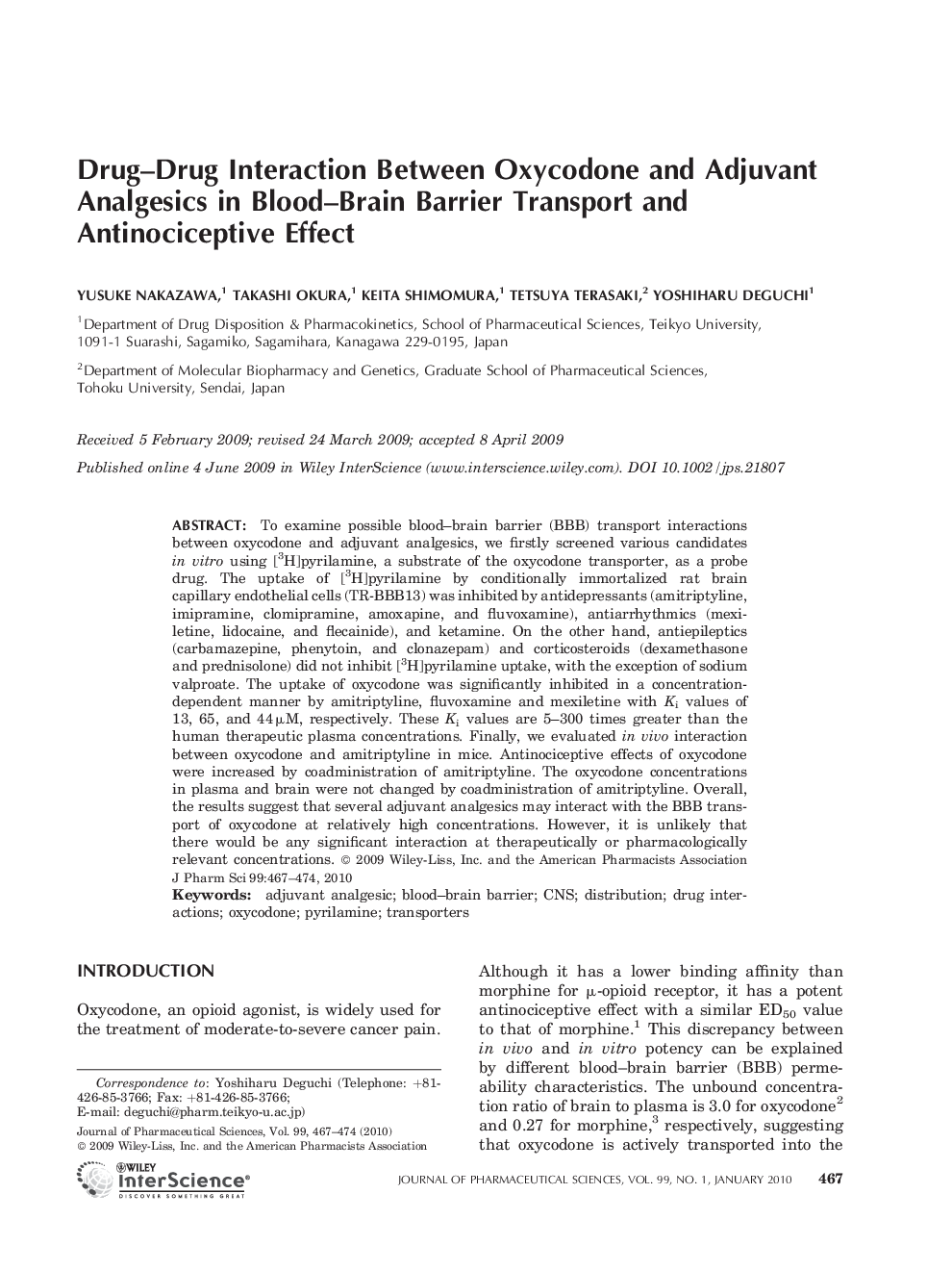| Article ID | Journal | Published Year | Pages | File Type |
|---|---|---|---|---|
| 2486248 | Journal of Pharmaceutical Sciences | 2010 | 8 Pages |
Abstract
To examine possible blood-brain barrier (BBB) transport interactions between oxycodone and adjuvant analgesics, we firstly screened various candidates in vitro using [3H]pyrilamine, a substrate of the oxycodone transporter, as a probe drug. The uptake of [3H]pyrilamine by conditionally immortalized rat brain capillary endothelial cells (TR-BBB13) was inhibited by antidepressants (amitriptyline, imipramine, clomipramine, amoxapine, and fluvoxamine), antiarrhythmics (mexiletine, lidocaine, and flecainide), and ketamine. On the other hand, antiepileptics (carbamazepine, phenytoin, and clonazepam) and corticosteroids (dexamethasone and prednisolone) did not inhibit [3H]pyrilamine uptake, with the exception of sodium valproate. The uptake of oxycodone was significantly inhibited in a concentration-dependent manner by amitriptyline, fluvoxamine and mexiletine with Ki values of 13, 65, and 44 µM, respectively. These Ki values are 5-300 times greater than the human therapeutic plasma concentrations. Finally, we evaluated in vivo interaction between oxycodone and amitriptyline in mice. Antinociceptive effects of oxycodone were increased by coadministration of amitriptyline. The oxycodone concentrations in plasma and brain were not changed by coadministration of amitriptyline. Overall, the results suggest that several adjuvant analgesics may interact with the BBB transport of oxycodone at relatively high concentrations. However, it is unlikely that there would be any significant interaction at therapeutically or pharmacologically relevant concentrations. © 2009 Wiley-Liss, Inc. and the American Pharmacists Association J Pharm Sci 99:467-474, 2010
Keywords
Related Topics
Health Sciences
Pharmacology, Toxicology and Pharmaceutical Science
Drug Discovery
Authors
Yusuke Nakazawa, Takashi Okura, Keita Shimomura, Tetsuya Terasaki, Yoshiharu Deguchi,
